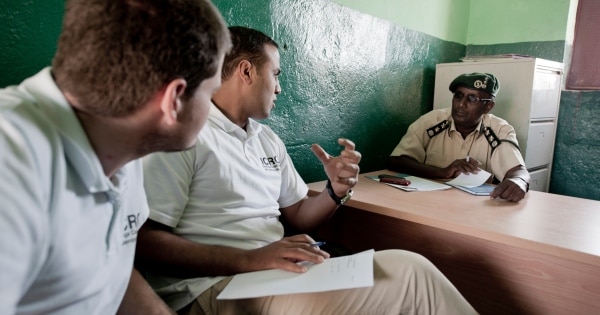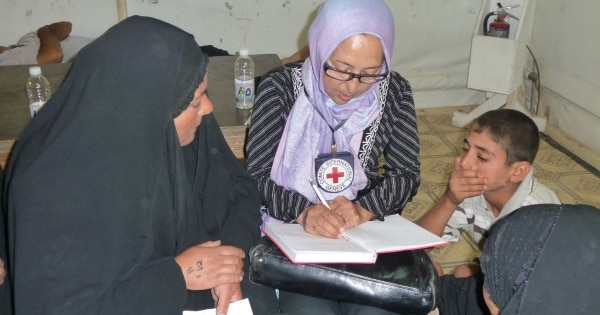
Languages
WHAT WE DO
ICRC interpreters work in the protection team and are the vital communication link enabling delegates to carry out tasks such as visiting detainees with a view to improving their living conditions and respect for their dignity, restoring family links and reuniting families separated by conflict, organizing emergency relief aid and talking to combatants about their responsibilities under the Geneva Conventions.
They also contribute to explaining and raising awareness of the ICRC’s mandate and working methods among various audiences and provide written translations of newspaper articles, correspondence, etc.
WHAT WE LOOK FOR
We recruit interpreters in about 14 languages, including:
Amharic/Tigrinya
Arabic
Azeri/Turkish
Bengali
Burmese
Farsi
Hausa
Khmer
Kinyarwanda
Kirundi/Swahili
Pashto
Peulh
Russian
Sinhalese
Ukrainian
This list is constantly evolving according to needs. We do not work with interpreters who originate from the country of the interpreted language.
You are:
- strongly motivated by humanitarian work;
- able to work under pressure in a potentially dangerous environment;
- open-minded and adaptable.
You have:
- a university education/degree in interpreting or translation as an advantage
- two years’ professional experience; previous interpreting or translating experience as an advantage;
- excellent command of English or French and the interpreted language.
WHAT WE OFFER
By joining our organization, you will have an opportunity to practise your profession in stimulating, complex and sometimes challenging environments, where your work can really make a difference.
You will work with colleagues from various fields of expertise in a cross-cutting manner to help victims of conflict and other situations of violence. You will be dealing with humanitarian situations that require experience, resourcefulness and innovation in order to achieve the best possible impact, often with limited resources.
You will work for the oldest major international humanitarian organization in the world, adding to your sense of achievement in alleviating the suffering of people and communities and giving you the chance to promote humanitarian values in these turbulent times.
You will benefit from a competitive employment package, including different possibilities for career and personal development. You will take part in an onboarding course and follow continuous training, in order to build your career within the ICRC and beyond.

